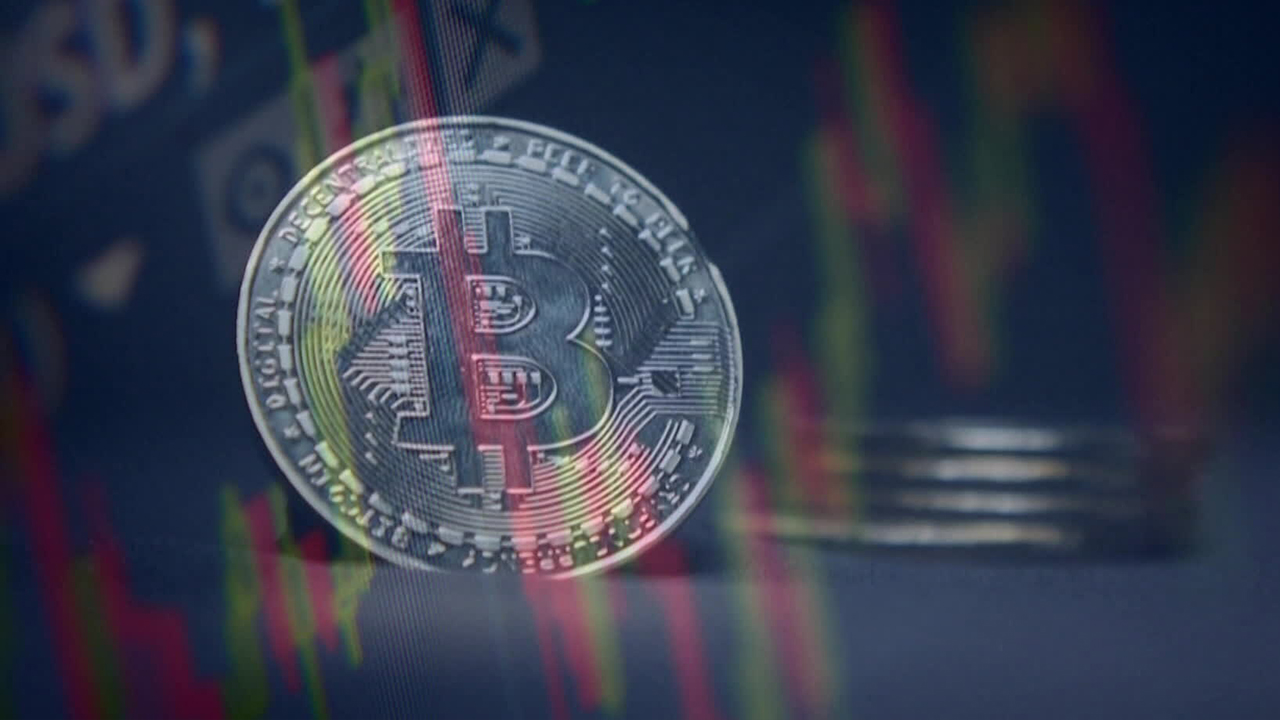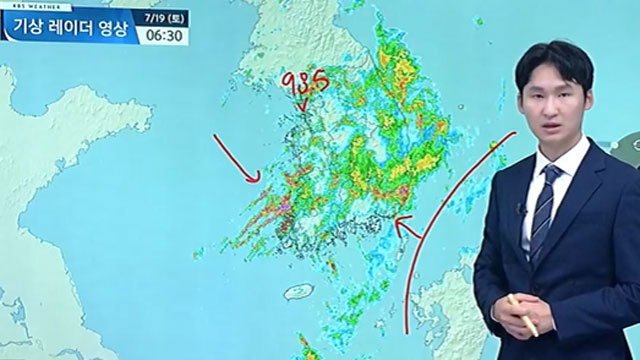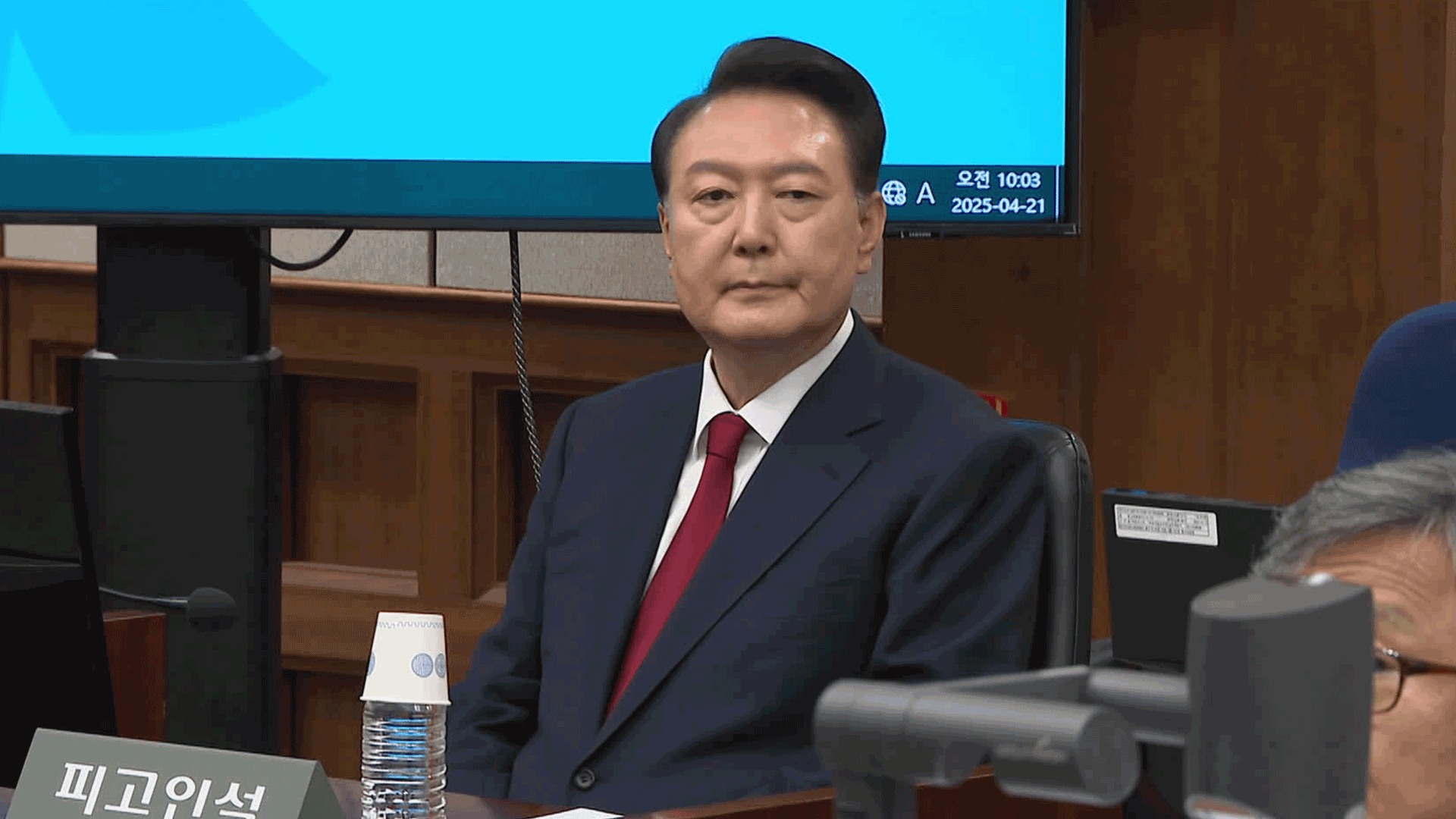Ruling and opposition parties clash over virtual asset taxation
입력 2024.11.22 (23:39)
읽어주기 기능은 크롬기반의
브라우저에서만 사용하실 수 있습니다.
[Anchor]
The ruling and opposition parties, which had a debate over the financial investment income tax, are now facing a similar situation regarding the taxation of virtual assets.
The People Power Party is in favor of postponing the implementation, which is set for January next year.
On the other hand, the Democratic Party argues that it should be implemented with some adjustments, although differing opinions are also emerging within the party.
This is a report by reporter Kim Cheong-yun.
[Report]
The taxation of income from virtual assets includes a provision for a 20% separate tax rate after a deduction of 2.5 million won on income generated from the transfer or lending of virtual assets.
In 2020, ruling and opposition parties agreed on this income tax law amendment to be implemented last year, but it has been postponed twice and is now set to be implemented in January next year.
The Democratic Party maintains that even if the deduction limit is raised, it should be implemented as scheduled.
They argue that it is a promise made during the general election and a commitment to the public.
[Jin Sung-joon/Democratic Party Policy Committee Chair: "For the virtual asset investment income tax, it was a promise made by the Democratic Party during the last general election to raise the current deduction limit from 2.5 million won to 50 million won."]
However, the internal situation of the Democratic Party is different.
Similar to the financial investment income tax, there are voices suggesting that the taxation of virtual assets needs to be reconsidered in light of reality.
In particular, it has been reported that Representative Lee Jae-myung recently raised questions about the readiness for taxation, such as whether virtual asset transactions can actually be tracked, during a closed meeting.
The People Power Party is emphasizing the issues related to virtual asset taxation and is demanding a two-year postponement.
[Han Dong-hoon/People Power Party Leader/Yesterday/People Power Party Supreme Council Meeting: "With our current state of preparation, fair and equitable taxation is difficult. For that reason, our government authorities have suggested a two-year postponement."]
The sharp rise in virtual asset prices following former U.S. President Trump's re-election has also increased investment among the younger generation, which poses a significant burden on the political arena.
However, if the implementation of the virtual asset income tax is postponed like the financial investment income tax, it could be criticized for undermining the basic principles and credibility of tax policy.
The controversy surrounding virtual asset taxation is heating up as both parties consider whether to choose postponement under the pretext of public sentiment or to proceed as planned.
KBS News, Kim Cheong-yun.
The ruling and opposition parties, which had a debate over the financial investment income tax, are now facing a similar situation regarding the taxation of virtual assets.
The People Power Party is in favor of postponing the implementation, which is set for January next year.
On the other hand, the Democratic Party argues that it should be implemented with some adjustments, although differing opinions are also emerging within the party.
This is a report by reporter Kim Cheong-yun.
[Report]
The taxation of income from virtual assets includes a provision for a 20% separate tax rate after a deduction of 2.5 million won on income generated from the transfer or lending of virtual assets.
In 2020, ruling and opposition parties agreed on this income tax law amendment to be implemented last year, but it has been postponed twice and is now set to be implemented in January next year.
The Democratic Party maintains that even if the deduction limit is raised, it should be implemented as scheduled.
They argue that it is a promise made during the general election and a commitment to the public.
[Jin Sung-joon/Democratic Party Policy Committee Chair: "For the virtual asset investment income tax, it was a promise made by the Democratic Party during the last general election to raise the current deduction limit from 2.5 million won to 50 million won."]
However, the internal situation of the Democratic Party is different.
Similar to the financial investment income tax, there are voices suggesting that the taxation of virtual assets needs to be reconsidered in light of reality.
In particular, it has been reported that Representative Lee Jae-myung recently raised questions about the readiness for taxation, such as whether virtual asset transactions can actually be tracked, during a closed meeting.
The People Power Party is emphasizing the issues related to virtual asset taxation and is demanding a two-year postponement.
[Han Dong-hoon/People Power Party Leader/Yesterday/People Power Party Supreme Council Meeting: "With our current state of preparation, fair and equitable taxation is difficult. For that reason, our government authorities have suggested a two-year postponement."]
The sharp rise in virtual asset prices following former U.S. President Trump's re-election has also increased investment among the younger generation, which poses a significant burden on the political arena.
However, if the implementation of the virtual asset income tax is postponed like the financial investment income tax, it could be criticized for undermining the basic principles and credibility of tax policy.
The controversy surrounding virtual asset taxation is heating up as both parties consider whether to choose postponement under the pretext of public sentiment or to proceed as planned.
KBS News, Kim Cheong-yun.
■ 제보하기
▷ 카카오톡 : 'KBS제보' 검색, 채널 추가
▷ 전화 : 02-781-1234, 4444
▷ 이메일 : kbs1234@kbs.co.kr
▷ 유튜브, 네이버, 카카오에서도 KBS뉴스를 구독해주세요!
- Ruling and opposition parties clash over virtual asset taxation
-
- 입력 2024-11-22 23:39:31

[Anchor]
The ruling and opposition parties, which had a debate over the financial investment income tax, are now facing a similar situation regarding the taxation of virtual assets.
The People Power Party is in favor of postponing the implementation, which is set for January next year.
On the other hand, the Democratic Party argues that it should be implemented with some adjustments, although differing opinions are also emerging within the party.
This is a report by reporter Kim Cheong-yun.
[Report]
The taxation of income from virtual assets includes a provision for a 20% separate tax rate after a deduction of 2.5 million won on income generated from the transfer or lending of virtual assets.
In 2020, ruling and opposition parties agreed on this income tax law amendment to be implemented last year, but it has been postponed twice and is now set to be implemented in January next year.
The Democratic Party maintains that even if the deduction limit is raised, it should be implemented as scheduled.
They argue that it is a promise made during the general election and a commitment to the public.
[Jin Sung-joon/Democratic Party Policy Committee Chair: "For the virtual asset investment income tax, it was a promise made by the Democratic Party during the last general election to raise the current deduction limit from 2.5 million won to 50 million won."]
However, the internal situation of the Democratic Party is different.
Similar to the financial investment income tax, there are voices suggesting that the taxation of virtual assets needs to be reconsidered in light of reality.
In particular, it has been reported that Representative Lee Jae-myung recently raised questions about the readiness for taxation, such as whether virtual asset transactions can actually be tracked, during a closed meeting.
The People Power Party is emphasizing the issues related to virtual asset taxation and is demanding a two-year postponement.
[Han Dong-hoon/People Power Party Leader/Yesterday/People Power Party Supreme Council Meeting: "With our current state of preparation, fair and equitable taxation is difficult. For that reason, our government authorities have suggested a two-year postponement."]
The sharp rise in virtual asset prices following former U.S. President Trump's re-election has also increased investment among the younger generation, which poses a significant burden on the political arena.
However, if the implementation of the virtual asset income tax is postponed like the financial investment income tax, it could be criticized for undermining the basic principles and credibility of tax policy.
The controversy surrounding virtual asset taxation is heating up as both parties consider whether to choose postponement under the pretext of public sentiment or to proceed as planned.
KBS News, Kim Cheong-yun.
The ruling and opposition parties, which had a debate over the financial investment income tax, are now facing a similar situation regarding the taxation of virtual assets.
The People Power Party is in favor of postponing the implementation, which is set for January next year.
On the other hand, the Democratic Party argues that it should be implemented with some adjustments, although differing opinions are also emerging within the party.
This is a report by reporter Kim Cheong-yun.
[Report]
The taxation of income from virtual assets includes a provision for a 20% separate tax rate after a deduction of 2.5 million won on income generated from the transfer or lending of virtual assets.
In 2020, ruling and opposition parties agreed on this income tax law amendment to be implemented last year, but it has been postponed twice and is now set to be implemented in January next year.
The Democratic Party maintains that even if the deduction limit is raised, it should be implemented as scheduled.
They argue that it is a promise made during the general election and a commitment to the public.
[Jin Sung-joon/Democratic Party Policy Committee Chair: "For the virtual asset investment income tax, it was a promise made by the Democratic Party during the last general election to raise the current deduction limit from 2.5 million won to 50 million won."]
However, the internal situation of the Democratic Party is different.
Similar to the financial investment income tax, there are voices suggesting that the taxation of virtual assets needs to be reconsidered in light of reality.
In particular, it has been reported that Representative Lee Jae-myung recently raised questions about the readiness for taxation, such as whether virtual asset transactions can actually be tracked, during a closed meeting.
The People Power Party is emphasizing the issues related to virtual asset taxation and is demanding a two-year postponement.
[Han Dong-hoon/People Power Party Leader/Yesterday/People Power Party Supreme Council Meeting: "With our current state of preparation, fair and equitable taxation is difficult. For that reason, our government authorities have suggested a two-year postponement."]
The sharp rise in virtual asset prices following former U.S. President Trump's re-election has also increased investment among the younger generation, which poses a significant burden on the political arena.
However, if the implementation of the virtual asset income tax is postponed like the financial investment income tax, it could be criticized for undermining the basic principles and credibility of tax policy.
The controversy surrounding virtual asset taxation is heating up as both parties consider whether to choose postponement under the pretext of public sentiment or to proceed as planned.
KBS News, Kim Cheong-yun.
-
-

김청윤 기자 cyworld@kbs.co.kr
김청윤 기자의 기사 모음
-
이 기사가 좋으셨다면
-
좋아요
0
-
응원해요
0
-
후속 원해요
0















이 기사에 대한 의견을 남겨주세요.